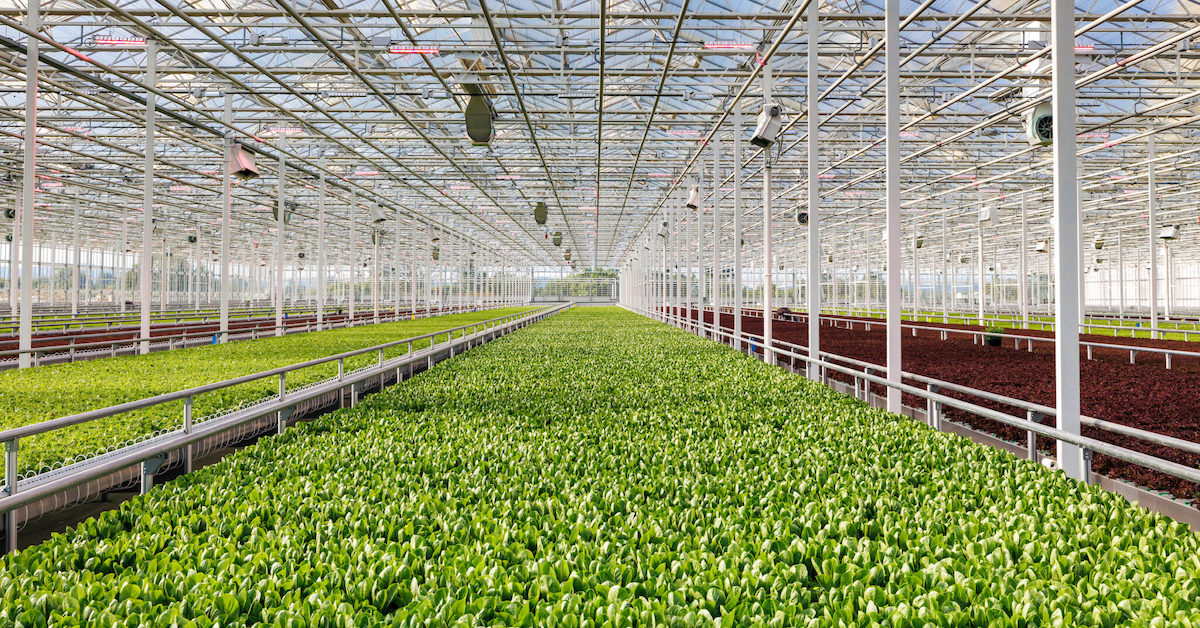Kentucky-based agricultural technology company AppHarvest filed for bankruptcy amid doubts about the business’ future.
The company, which has built some of the world’s largest indoor farms, announced plans Monday morning for “a financial and operational transition” that includes filing for bankruptcy. Recent media reports have highlighted turmoil associated with the company, such as a lease termination and facility foreclosures.
An attorney for AppHarvest filed documents late Sunday night in the Southern District of Texas U.S. Bankruptcy Court. The case is assigned to Judge David R. Jones.

A company press release said AppHarvest’s course correction plan revolves around the bankruptcy filing. Additionally, the company has a commitment from creditor Equilibrium for $30 million of debtor-in-possession financing to support its operations in Morehead, Richmond and Somerset. The financing is subject to the court’s approval.
Earlier in July, the Lexington Herald-Leader reported that the property owner of AppHarvest’s Berea facility wanted to terminate the company’s lease. As part of its plan, AppHarvest wants to transfer its Berea operations to distribution partner Mastronardi Produce or an affiliate at the cost of $3.75 million, along with additional support. This, too, is subject to court approval.
AppHarvest’s stock price was $0.33 at the close of business Friday, before news of the bankruptcy made headlines. Mid-morning Monday, the stock price dipped to $0.11.
Tony Martin, CEO of AppHarvest, said in a statement that the company’s board and executives “evaluated several strategic alternatives to maximize value for all stakeholders” before the bankruptcy filing.
“The Chapter 11 filing provides protection while we work to transition operation of our strategic plan, Project New Leaf, which has shown strong progress toward operational efficiencies resulting in higher sales, cost savings and product quality,” he continued.
Almost two weeks ago, the company announced AppHarvest founder Jonathan Webb would step down as CEO and board chairman to become chief strategy officer. Martin was named CEO effective immediately and Kevin Willis stepped in as board chairman. Webb remains on the board.
Meanwhile, company documents show continued concern with AppHarvest’s future success. In December and May quarterly reports, management wrote “there is substantial doubt about the Company’s ability to continue.”
Media reports have shown other issues with the company. The Herald-Leader reported the company’s Richmond facility was at-risk of foreclosure. Last week, WDRB reported AppHarvest’s board approved nearly $2.5 million in immediate cash payments to its top four executives and hiking board members cash fees substantially, which will be paid in advance.
AppHarvest in 2020 opened huge greenhouses to grow tomatoes and other vegetables indoors. Across its Kentucky facilities, it has 165 acres in its farm network.
Democratic Gov. Andy Beshear, who is seeking a second term in office, recently told reporters that while “it’s unfortunate” AppHarvest has struggled in the commonwealth, agriculture technology will remain part of Kentucky’s future economy.
This article is republished under a Creative Commons license from Kentucky Lantern, which is part of States Newsroom, a network of news bureaus supported by grants and a coalition of donors as a 501c(3) public charity. Kentucky Lantern maintains editorial independence. Contact Editor Jamie Lucke for questions: info@kentuckylantern.com. Follow Kentucky Lantern on Facebook and Twitter.
McKenna Horsley covers state politics for the Kentucky Lantern. She previously worked for newspapers in Huntington, West Virginia, and Frankfort, Kentucky. She is from northeastern Kentucky.






